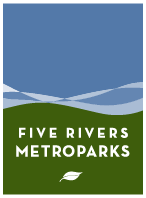Research
Five Rivers MetroParks Foundation Ecological Research Grant
Five Rivers MetroParks, with support from the Five Rivers MetroParks Foundation, offers a research grant for scientists that conduct or plan to conduct research on FRMP land to promote conservation.
Five Rivers MetroParks’ mission is to protect the regions natural heritage and provide outdoor experiences that inspire a personal connection with nature. The Purpose of Five Rivers MetroParks (FRMP) is to protect natural areas, parks, and river corridors, and to promote the conservation and use of these lands and waterways for the ongoing benefit of the people in the region.
Five Rivers MetroParks, with support from the Five Rivers MetroParks Foundation (FRMPF), offers a research grant for scientists that conduct or plan to conduct research on FRMP land to promote conservation. The grant award reimburses expenses up to $5,000 to researchers conducting studies related to ecology, conservation, and biology. This grant is designed to reimburse costs to assist with equipment, travel, stipends, and other costs associated with research.
Proposals will be evaluated by management implications, project design, and feasibility. Preference will be given to quality proposal(s) that exhibit operational and/or financial efficiencies, show matching grant funds from other institutions, and relate to FRMP projects of interest.
Research is essential for understanding our environment and creating more efficient management practices to conserve and protect it. There are about a dozen research permits administered through FRMP annually. Projects cover a wide range of topics from aquatic insects, forest ecology, wildlife, plants, fungi, to climate change. Collaboration with universities has greatly improved our FRMP management practices. If you are interested in learning more about local research projects, please check out our EcoTalks presentations where you can listen and ask questions to local scientists as they present about their research.
Applications for 2024 will be posted on this webpage in spring 2024
Previous Grant Recipients
2023

Distributional extent of the little brown bat at Germantown MetroPark
Jeff Brown and Dr. Joe Johnson, University of Cincinnati
This project was to further investigate distributional and behavioral research on little brown bats (Myotis lucifugus) and other bat species. They seeked to further expand results of the Ohio Bat Blitz in 2023 with a particular focus on little brown bats at Germantown MetroPark and in the Twin Valley. This grant provided additional support for vehicle rental and mileage reimbursements to this project to assist with transporting mist net poles and other equipment.

Pollinators and Perceptions in Urban Agriculture: Do farmers’ perceptions of pollinators and pollinator recruitment activities affect pollinator communities in urban and periurban agriculture of the Miami Valley?
Samantha Urquidez, University of Dayton
This research is being conducted in urban and peri-urban agriculture areas ranging from small-scale educational gardens to large multi-acre operations within the greater Dayton area. Including three Five Rivers Metropark Locations: Wegerzyn Skeeter Garden, Possum Creek Demonstration Garden and Cox Arboretum Edible Garden. There is currently little research looking at the efficacy of pollinator recruitment methods and the role soil health plays in promoting pollinator activity in agricultural plots. Understanding which methods are most effective in an urban environment is critical to the success of producing insect-pollinated crops in these urban and peri-urban agricultural endeavors. This grant assisted with reimbursement of the soil nutrient and heavy metal soil testing.
To learn more about this project consider attending the May 2024 EcoTalk and listen to her 3MT presentation.

Effects of human activities within hiking trails on vertebrate wildlife
Dr. Mariela Gantchoff, University of Dayton
The goal of this study is to quantify the impact of human presence within hiking trails on wildlife occurrence within Metroparks. We will survey 10 sites in Upper Twin (no trails), 10 sites in Germantown (medium trail density), and 10 sites in Twin Creek (high trail density). They used camera traps to identify mammalian species. With the data collected, the research lab will conduct occupancy and activity modeling for the different species identified. This grant assisted with reimbursement towards a stipend for students to classify thousands of trail camera photos.
2022

The tiny things that restore the forest: amending the soil microbial community to advance oak seedling success in post-agricultural landscape of the American Midwest
Michaela Woods and Dr. Ryan McEwan, University of Dayton
The goal of this study is to quantify soil and plant community restoration on fallow agricultural fields after the implementation of novel combinations of restoration techniques to determine if these techniques can accelerate the transformation of agricultural land to native forest. Michaela’s project was part of an on-going UD research project at the Great Miami Mitigation Bank/Spring Run Conservation Area in Trotwood, Ohio. They established 20 research plots with varying seed mixes and treatments at Spring Run, where the land was previously farmed. This is a long-term research project that began in 2019. This project relates directly to our restoration goals for FRMP and has implications for other restoration projects across the midwest. This grant assisted with reimbursement for soil nutrient and soil microorganism analysis.

Arthropod food webs on invasive forest shrubs
Ari Zakroff and Dr. John Stireman, Wright State University
Ari’s masters project through Wright State University focused on how invasive shrubs are affecting arthropod food webs and contributing to biodiversity and ecosystem services relative to native woody plants. His fieldwork took place on almost all of our MetroParks. Despite the widespread distribution of invasive shrubs, there is a lack of scientific literature on how invasive shrubs impact arthropods. The conservation staff at Five Rivers MetroParks helped assist with Ari’s field work, by helping identifying arthropods on native and invasive shrubs. This grant assisted with travel and mileage reimbursements for fieldwork.


